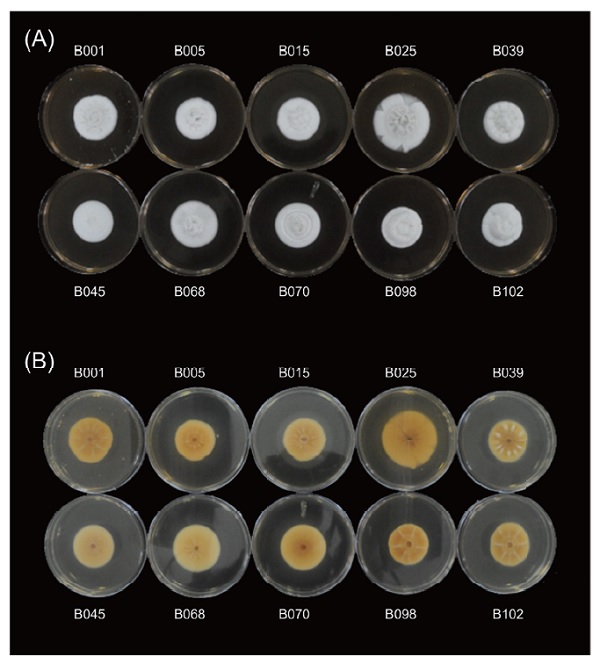All issues

Author:Po-Hung Chen, Yu-Ping Liang, and Hui-Fang Ni*
Abstract:
Beauveria bassiana (Bb) is an important microbial biocontrol agent for controlling the coffee berry borer (CBB, Hypothenemus hampei) in many countries; however, no commercial Bb product is currently available to the coffee industry in Taiwan. Therefore, the aims of this study were to investigate the natural infection rate of CBB in local coffee orchards, and to screen native Bb isolates as potential control agents against CBB through isolation, identification, and laboratory tests. The results showed that the natural prevalence of Bb varied dramatically among different orchards. In an experimental orchard in Gukeng Township, Yunlin County (extensive farming), the maximum infection rate of female CBB in infested berries was 13.3% (averaged 3.1%). The incidence peaked from March to June, showing 70.0% of dead CBB females were infected with Bb. However, in the other orchard in Ren-ai Township, Nantou County (conventional farming), the infection rate was very low, with a maximum of only 4.9% (averaged 0.6%). To screen isolates with biocontrol potential, a total of 98 isolates were collected from the production areas, including Taichung, Nantou, Yunlin, etc. Seven isolates were selected and identified as Bb by cultural morphology and DNA sequences of internal transcribed spacer, B locus intergenic region, and translation elongation factor 1-α. The mycelial growth rate, spore germination rate, and virulence to CBB varied among isolates at different temperatures. Isolates B005, B025, and B068 were more tolerant to high temperatures, the spore germination rates of which were 98%, 94%, and 88% at 32℃, respectively, while the germination rates of most other isolates were 30–60%. Most isolates had higher virulence to female CBB at 25℃ , resulting in a mortality rate of 100% 8 days post-inoculation (dpi). All isolates failed to cause 100% mortality 8 dpi at 32℃, while B005, B039, and B068 had better performance, which caused 67%, 72%, and 77% mortality 8 dpi, respectively. In future research, we will continue screening isolates with biocontrol potential, and formulate Bb products with B068. We hope to develop commercial Bb products that will be suitable for managing CBB in the Taiwanese coffee cultivation system and help to improve the coffee industry.
Key words:Coffee berry borer, Beauveria bassiana, Biological control
Download:![]() PDF Links
PDF Links
- 1. Using Digital Soil Mapping to Predict Soil Organic Carbon Stocks in Zhuoshui River Basin
- 2. Development of a Technique for Forecasting (or Pre-Detection) Anthracnose Disease Incidences of Green Mature Bagging Mango Fruits
- 3. Taxonomic Review of the Genus Asiophrida Medvedev, 1999 in Taiwan (Insecta: Coleoptera: Chrysomelidae: Galerucinae: Alticini), with Notes on Biology
 Submit your manuscript
Submit your manuscript
 Guide for authors
Guide for authors